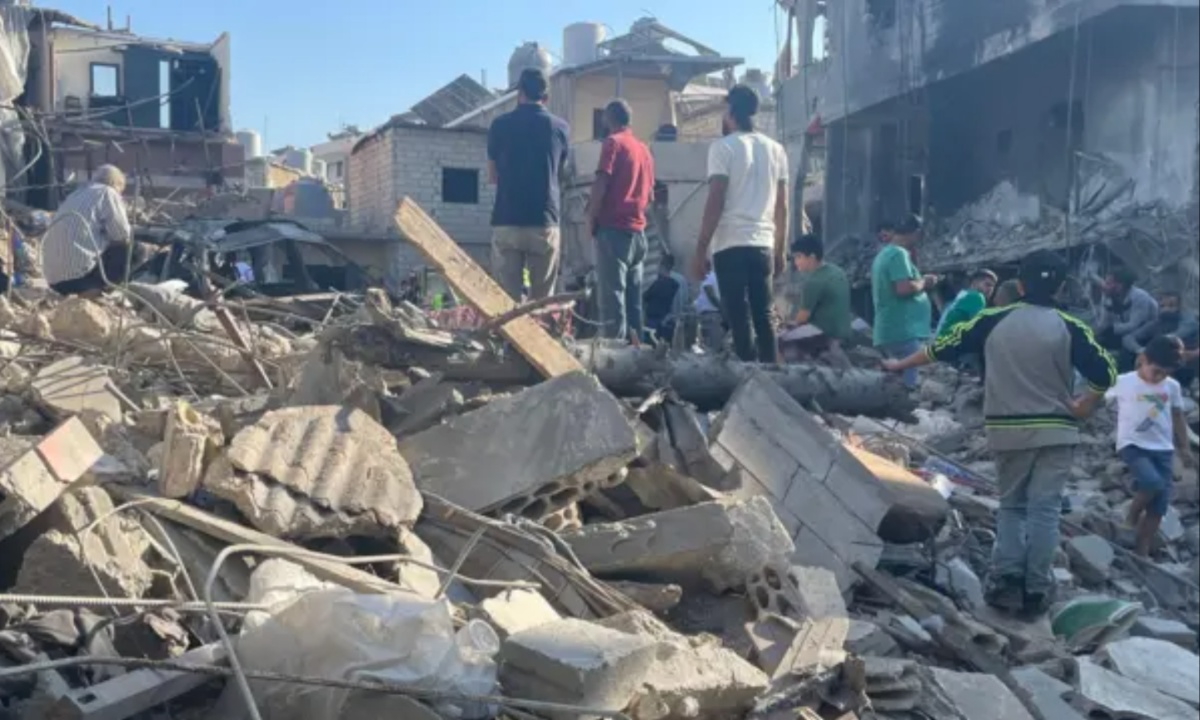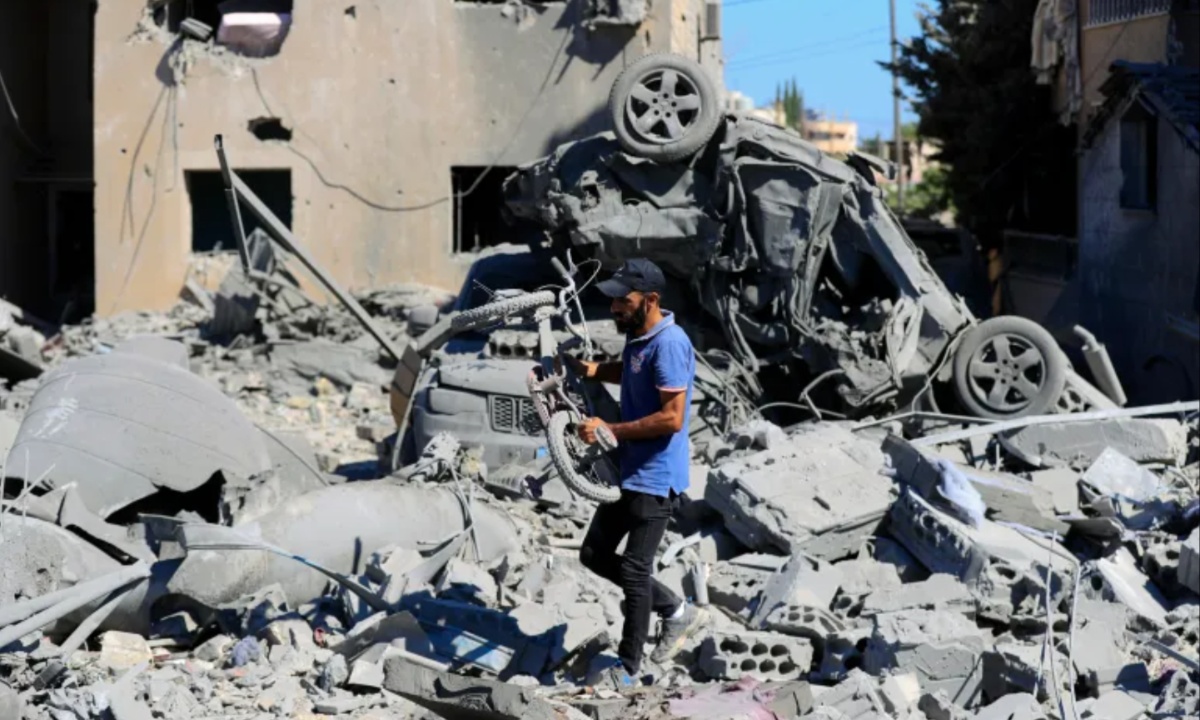Fouad Hassan, a 74-year-old resident of south Beirut, was sitting on his balcony when an Israeli airstrike hit his neighborhood, without prior evacuation warnings. The strike devastated a cluster of residential buildings, including the home of his children and grandchildren.
Fouad fainted due to the smoke and destruction and later awoke to find the entire neighborhood leveled. The buildings, once filled with families, were reduced to rubble, with possessions strewn through gaping holes in the walls. Local men worked slowly to uncover bodies buried beneath the wreckage.
Fouad, known as Zaghloul, is a respected figure in the community, having worked as a comedian on Lebanese television. His granddaughter Alaa was killed in the strike, and his grandson remains in a coma. Alaa had been engaged and looking forward to her wedding in three months.
Fouad expressed deep sorrow, sharing a photo of her in a gold dress, questioning why such tragedies are allowed to happen. Many people in the neighborhood, including young children who looked up to Fouad as a grandfatherly figure, also lost their lives in the attack.

Beirut Airstrike Devastates Community, Killing Beloved Comedian’s Granddaughter and Leaving Neighborhood in Ruins
Israel has escalated airstrikes against Hezbollah since September, targeting various locations across Lebanon. The Israeli government claims significant military success in eliminating senior Hezbollah leaders, but the campaign has also resulted in numerous civilian casualties. Government figures report over 1,900 Lebanese deaths, with no distinction made between militants and civilians.
The Israeli military defended the recent strike, stating it aimed at a Hezbollah target, though they provided no further details. Early reports mistakenly suggested that a nearby hospital had been hit, but the damage there was minimal compared to the surrounding poor neighborhood.
Fouad’s son, Ahmed, also shared his pain, showing a photo of his injured son who lies in intensive care. Ahmed expressed disbelief and anger, calling the strike a massacre and noting that there were no Hezbollah militants in their neighborhood.
The family, like many others, has lost everything—home, possessions, and loved ones. The lack of an evacuation order in such densely populated areas has raised questions about the indiscriminate nature of these attacks, which continue to take innocent lives.
As the search for bodies continued, Fouad mourned the children from his neighborhood, remembering the joy they brought him as they called him “Grandpa” and asked for treats. He expressed deep sorrow for the loss of their lives and the continuing trauma as families remain trapped under rubble. As the scene unfolded, a body was carried away on a stretcher, symbolizing the ongoing grief and devastation inflicted on this community.











































